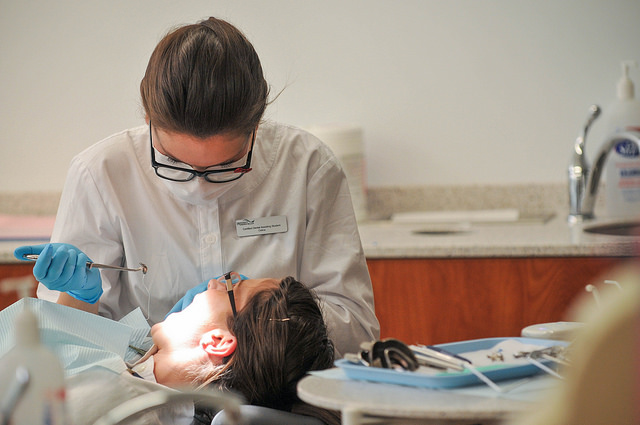
Have you ever wondered about the person cleaning your teeth? Since April is Oral Health Month, we thought we’d highlight these amazing members of our team who keep your teeth healthy. If that’s a job that you think you’d find interesting, find out how you can make a difference.
A dental hygienist is an oral health professional who works under the supervision of a licensed dentist. Along with teaching patients the virtues of proper oral hygiene, dental hygienists also conduct patient assessments, oral inspections, and perform teeth cleanings. Hygienists work in either general or specialty dental clinics, but they may also find employment in hospitals, nursing homes, and other healthcare facilities.
One of the driving factors behind why many choose to become a dental hygienist is the enjoyable aspect of working with people and the personal fulfillment that comes from providing a valuable service while establishing a trusting relationship with patients. There is a high demand for dental hygienists, which is expected to continue rising. According to the U.S. Bureau of Labor Statistics, the mean annual salary for dental hygienists as of 2016 is $73,440. Flexible work hours enable dental hygienists to balance their work and social lives while also affording ample opportunities to work in a wide variety of settings including private dental practices, educational and community institutions, research teams, and dental corporations.
Dental hygienists will usually hold an associate’s degree, such as an Associate of Applied Science in Dental Hygiene. Two-year degree programs are available at community colleges, vocational institutes, or dental schools. Students are prepared for their careers through instruction in both classroom and clinical environments.
All dental hygienists must be properly licensed to work in all 50 states. Specific eligibility requirements vary across state lines, but almost every state requires applicants to be graduates of an accredited dental hygiene education program. Additionally, qualified candidates are required to sit for the National Board Dental Hygiene Examination, which is a written exam administered by the American Dental Association. After completing this nationally standardized test, candidates must also complete a regional or state clinical board examination. Upon receiving their license, the new dental hygienists may now legally use “R.D.H.” after their names to signify state recognition that they are indeed a Registered Dental Hygienist.
While an associate’s degree is enough for most dental hygienist positions, some hygienists go on to earn higher degrees to advance their careers. Holding a Bachelor’s and/or Master’s degree in dental hygiene may qualify hygienists for careers well beyond the dental office, in areas such as teaching and research. Additionally, holding these advanced degrees may be necessary for those looking to take over positions in the public health sector or school clinics.
Schedule a visit today and meet any one of our great dental hygienists on staff. Our staff takes great care to make sure that you leave our office happy and with a gorgeous, gleaming smile every time. Book yourself an appointment today!